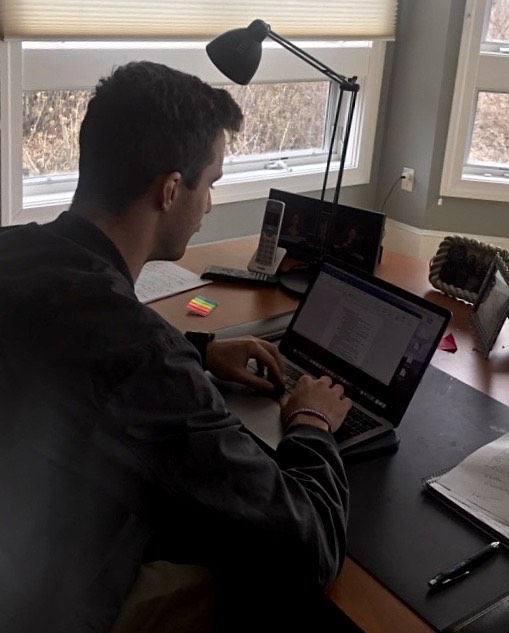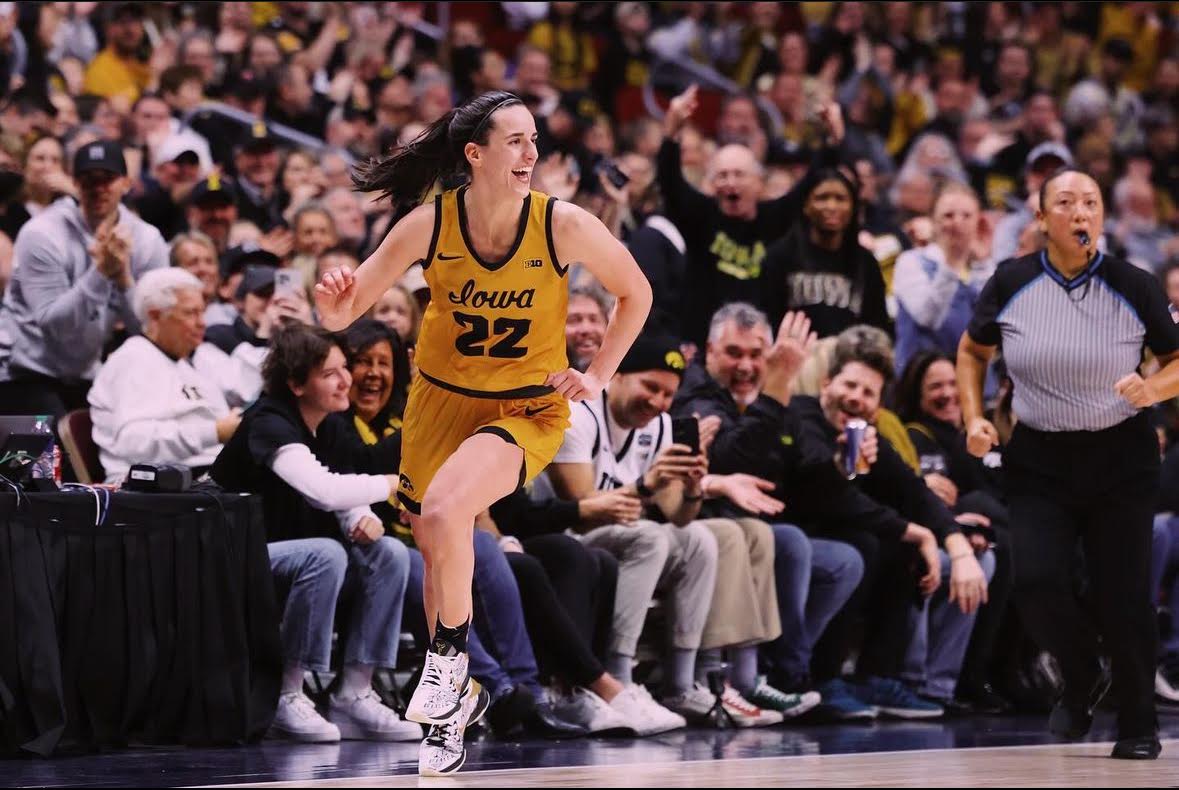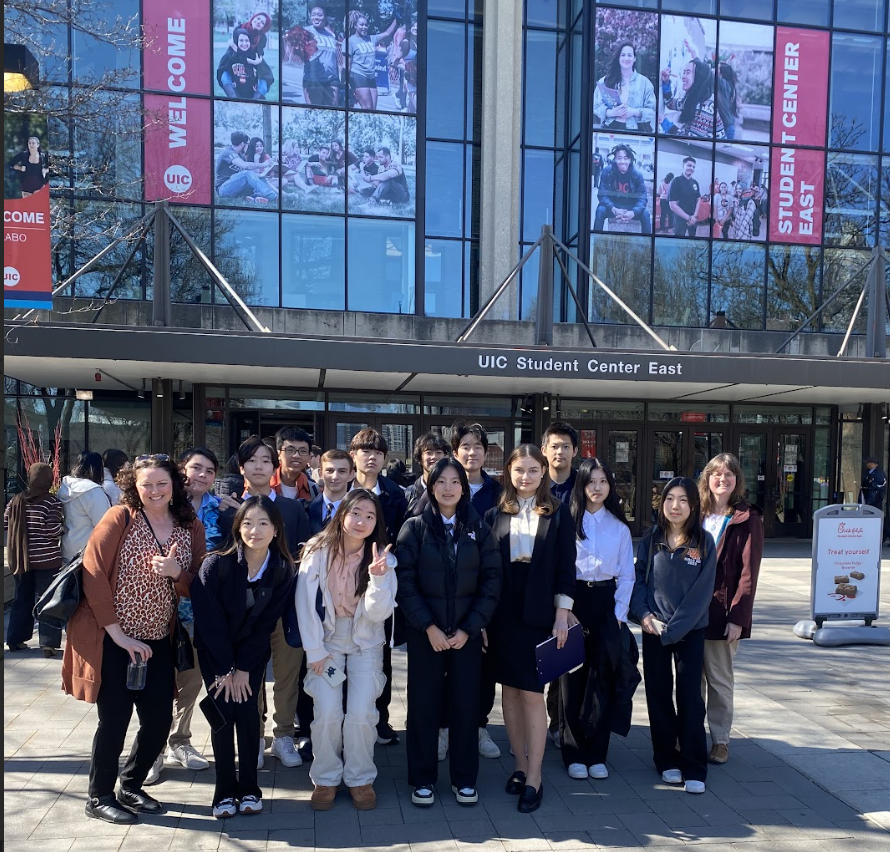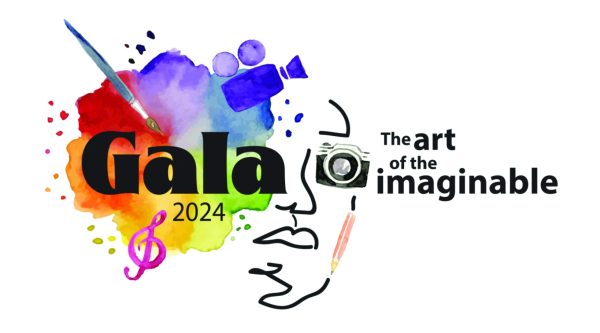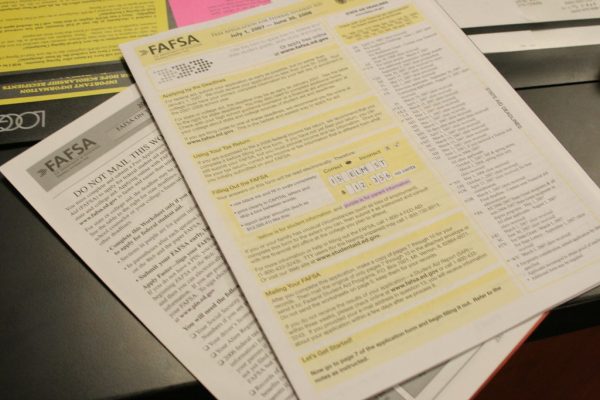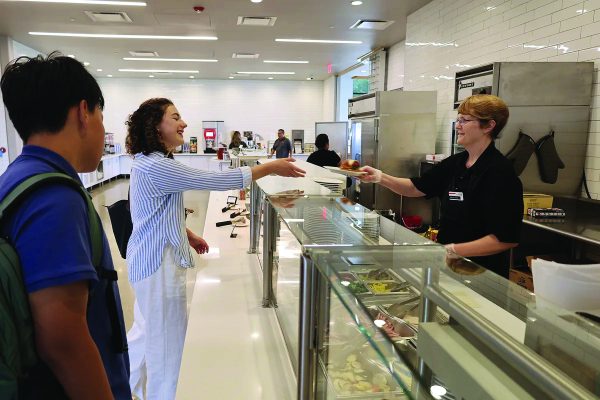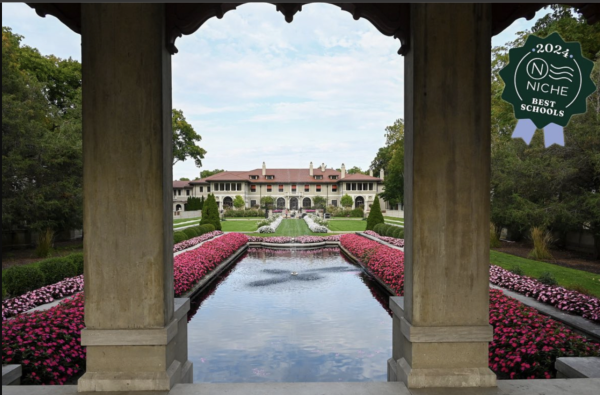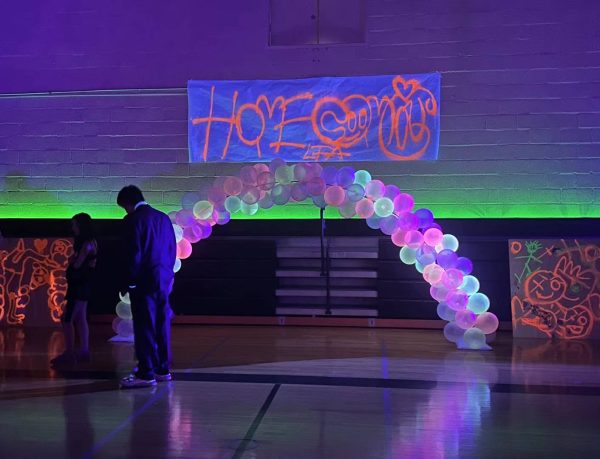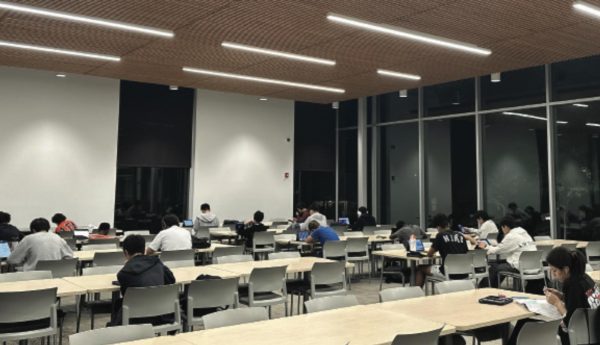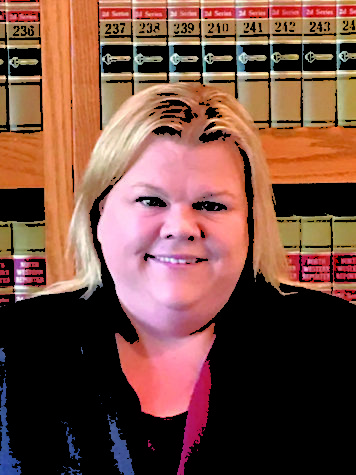Coronavirus pandemic forces LFA to close school: The move to online learning
Photo by Audrey McGrail
LFA officially transitioning to e-learning has reinvented the home as a place for online school.
May 4, 2020
On Saturday, March 21, 2020, Lake Forest Academy Head of School, Mr. José De Jesús, emailed the LFA community on plans to suspend in-person classes and transition to online learning for the rest of the academic year – an effort to slow the spread of the COVID-19 outbreak. This announcement further extended a previous email that issued a two-week online learning period following Spring Break running from Wednesday, April 1 to Friday, April 17. On April 4, Governor Pritzker suspended all in-person learning for the rest of the academic year remarking that “decisions must follow the science, and the science says our students can’t go back to their normal routine this school year.” This order to close in-person classes would have affected LFA, although an independent school, had the Academy’s administration not made their own decision two weeks earlier.
LFA Policy Change in Response to E-Learning
LFA’s order effectively closed all school buildings and dorms and cancelled any and all in-person spring gatherings and events, including sports practices and games, musical concerts, and performances. Additional changes include the cancelling of finals exams, which would have concluded on May 29, the last day of school. Now the academic year will end on May 22. This e-learning period will continue to follow LFA’s traditional cycle-based schedule. Class time will be either held ‘live,’ mainly on the video platform Zoom, or will be an asynchronous learning activity. The necessities of the use of class time include: a least one Zoom call a cycle, Zoom calls have to be recorded for students unable to attend class during the “live” time, easy access to the activity that is made available at the beginning of class, a limit on how long in-class activities should take (no more than the allotted class time), a window of time for student’s to complete the given school work to adjust to time differences, internet access, and family circumstances.
Per LFA’s website and COVID-19 response page, “students should bring as much effort, commitment, thoughtfulness and energy as they can and reach out for help when they need it, just as they do when in our classrooms on campus.” Such commitment is shown by a student by completing their work on time and to the best of their ability. Per a new e-learning policy, if a student completes all necessary work, they can either retain or improve their grade; course grades cannot go below the letter grade issued on March 13, 2020. Failure to finish work sufficiently will result in an “incomplete.”
Over a Zoom call, History department faculty member, Mr. Chris Dozois, noted that he and fellow teachers are “working very closely to shift everything we normally do at the end of the year to make sure kids are prepared.”
E-Learning Impacts on Advanced Placement (AP) Classes
Dozois teaches both AP United States History and regular United States History. Both courses, of course, have had to adjust to online learning. Both also have a similar timeline and goal: to continue the study of US history. The courses do vary, however, with one major difference – the AP. With changes to the AP exams for this school year (now, an online 45-minute test that has eliminated multiple-choice questions), AP US History has had to adapt.
“We feel an obligation to set students up as well as they can be for the AP,” Dozois expressed. “The new material that we are learning, we are assessing it based on DBQ tests. This way we can focus on one skill set.”
These changes reflect the AP changes. For AP US, this means a 45-minute ‘Document Based Question’, only focused on material learned earlier in the semester, which LFA US History students finished learning prior to Spring Break. This structure is similar to the vast majority of AP courses, including AP Chemistry. Science department faculty member, Dr. Kerry Cedergren, teaches AP Chemistry and reflects that the class, similar to AP US History, was finished with all new material, including what will be tested on the AP exam, before e-learning had begun. Now students are preparing for the AP “by doing a lot of practice problems.” Class virtually “isn’t much different than if we were in class together,” Cedergren wrote over email.
E-Learning Adjustments and Adaptations to the Classroom
As for other classes, the changed learning environment has caused substantial differences in course material. Compare Dozois and Cedergren’s non-AP classes: United History and Biochemistry Research, respectively.
In US History, Dozois shares that the course will “continue to go through the normal content,” although now, of course, virtually. What is being adapted is how knowledge is assessed and how the classes interact with and discusses new material.
In normal circumstances, Dozois shared, “I like to sit in a circle with the class and do a lot of talking with different people moving to the front of the room.” Under pandemic circumstances in a new e-learning environment, Dozois is the only one “in front of the room the whole time,” and it is challenging to keep students active and engaged over an electronic screen. “I really have to work on my ability to draw kids into the conversation because if we are sitting in class it’s easy for me to say ‘Okay, who wants to volunteer? Who hasn’t talked yet?’ But with everyone behind the screens, I can’t do that as much.”
As for Cedergren’s Biochemistry Research class, the experience is “completely different.” This course, often referred to as BioChem, is focused on a student’s own original research and relies heavily on lab experiments. A course so focused on lab time and reliant on in-person research, cannot be as seamlessly adapted to e-learning. Students still follow their different projects and are given “journal articles to read and videos to watch that pertain to each of their own projects,” said Cedergren.
Educational Experiences in an Unexpected E-Learning Environment
In this new and unexpected environment, however, e-learning has, somewhat surprisingly, opened new doors to increased learning. In Cedegren’s BioChem course, this e-learning period has allowed for students to learn about other realms of Chemistry. Such new topics include the subject most prevalent and most talked about: the coronavirus pandemic and the disease it causes known as COVID-19. “Since we hear all about COVID-19 and testing for the virus on the news, I taught them how diagnostics tests work since I developed diagnostic tests when I worked at Abbott Labs 19 years ago. We talked about the antibody tests too and possible drugs that can be used to treat the virus if you get sick.” Situations like this are especially educational, although they weren’t necessarily planned for the course or for students to learn about them.
Such nice surprises have echoed in most of LFA’s other virtual classrooms. For Dozois, this has been the sharing of student experiences when learning about historical events. “I had a student in Russia, and we were talking about the Cold War, just sitting in southern Russia. I had a student in China, we were talking about the Formosa’s Revolution in Taiwan, sitting in China,” he reflected. “It’s made me reappreciate the ability I have to draw in student’s perspectives more that I might have before.”
Cedergren reflected that this time has allowed her to learn “a few new ways to use technology to help the students and give them as many advantages as I can give them.” As for when normal times hopefully soon returns Cedergren notes that she hopes “we are all better prepared for missing class due to a field trip, sports event or sickness.” She now plans “to record the classes for students that are missing to alleviate the pressure they feel when they miss class. It may also encourage them to stay home when they are sick knowing that they can get a pretty good idea of what happened in class when they were missing.”
This e-learning period is historical, and along the way, LFA will hopefully find new ways of learning, increase capacity of knowledge, and not soon forget all the ways we have adapted and grown to meet what lies ahead. It’s LFA’s commitment and community that will see us through.

